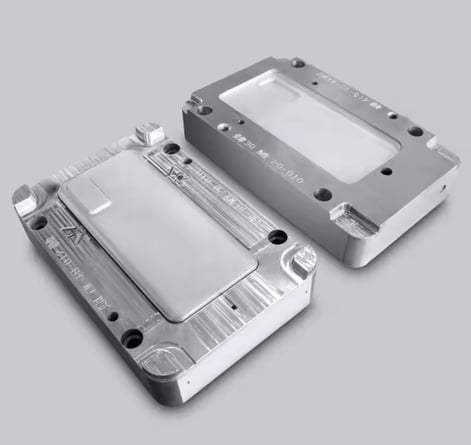Revolutionizing Industry with Mold Technology
Discover how mold technology is transforming modern manufacturing through innovative injection mould and injection mold solutions. Explore the numerous benefits and applications of custom design molds in today's industrial landscape.
9/18/20243 min read


Revolutionizing Industry with Mold Technology
In today's globalized and technologically advanced era, mold technology stands as a critical driver of manufacturing across various sectors. Whether in automotive production, electronics manufacturing, or consumer goods processing, the evolution of mold technology not only enhances production efficiency and product quality but also fosters innovation and sustainable development in industrial manufacturing. This article delves into the definition, classifications, application areas, and future trends of mold technology, aiming to provide readers with a comprehensive overview of this pivotal aspect of modern industry.
Part 1: Overview of Mold Technology
Molds are specialized tools or equipment used in manufacturing to shape and form products. They are designed based on specific manufacturing requirements and material properties, and they play a crucial role in metalworking, plastic molding, rubber products, and more. The precision and manufacturing processes of molds directly impact product quality, cost-effectiveness, and production efficiency.
1.1 Types of Molds
Molds can be categorized based on their materials and applications:
- Die Casting Molds: Used for casting metals or alloys, essential in producing automotive components, industrial equipment shells, etc.
- Plastic Molds: Including injection molds, blow molds, crucial for manufacturing plastic products such as appliance casings, consumer product packaging, etc.
- Rubber Molds: Utilized in producing rubber products like tires, seals, etc.
- Stamping Molds: Used in metal sheet stamping processes, for instance, in manufacturing metal casings for electronic devices, furniture components, etc.
1.2 Key Technologies in Mold Manufacturing
Mold manufacturing involves intricate processes and technological requirements, including:
- CAD/CAM Technology: Computer-aided design and manufacturing techniques enhance mold design precision and flexibility.
- Precision Machining Technologies: Such as CNC machining, EDM (Electrical Discharge Machining), ensuring high precision and the ability to handle complex structures.
- Material Selection and Heat Treatment: Choosing suitable materials and applying appropriate heat treatments to enhance mold durability and wear resistance.
Part 2: Applications of Mold Technology Across Industries
As a cornerstone of modern industrial processes, mold technology finds widespread applications across various sectors:
2.1 Automotive Manufacturing
In automotive manufacturing, mold technology is indispensable. From structural components to critical engine parts, nearly all metal components undergo shaping through die casting or stamping molds. The quality and durability of molds directly influence automotive performance and safety standards.
2.2 Electronics Manufacturing
Precision molds play a vital role in electronics manufacturing. From plastic casings for mobile phones and computers to intricate internal components, molds ensure efficient and precise production. With the rapid evolution of electronic products, mold technology continues to innovate to meet stringent quality and design requirements.
2.3 Consumer Goods Production
Plastic injection molds dominate consumer goods production. Items such as bottles, containers, and furniture components rely on efficient mold designs to optimize production costs and market competitiveness. Mold technology advancements contribute to enhancing product aesthetics and functionality.
2.4 Medical Equipment Manufacturing
Manufacturing medical devices and equipment requires molds of high precision and reliability. From housings to intricate internal mechanisms, molds ensure product safety and performance standards. Innovations in mold technology support advancements in medical technology and healthcare delivery.
Part 3: Future Trends in Mold Technology
The future of mold technology is shaped by several technological and market trends:
3.1 Digital Design and Manufacturing
Advancements in CAD/CAM technologies streamline mold design processes, reducing design cycles and minimizing trial and error costs. Virtual simulations and 3D printing technologies further accelerate innovation in mold production.
3.2 Smart Manufacturing and Automation
Integration of IoT (Internet of Things) and sensor technologies enables real-time monitoring and data-driven optimization of mold manufacturing processes. Smart manufacturing principles enhance production efficiency and quality control.
3.3 Sustainable Development and Environmental Requirements
Amid growing environmental awareness, the mold manufacturing industry faces challenges to reduce energy consumption and waste generation. Adoption of eco-friendly materials, energy-efficient technologies, and the concept of recyclable molds are pivotal in shaping the future of mold technology.
Conclusion
Mold technology serves as a cornerstone of modern industrial processes, driving advancements in manufacturing efficiency, product quality, and sustainability. As technology evolves and market demands shift, mold technology will continue to innovate, providing industries with more efficient and environmentally friendly manufacturing solutions. This article aims to provide readers with a comprehensive understanding of mold technology and its applications, offering insights into future trends and opportunities in manufacturing.
